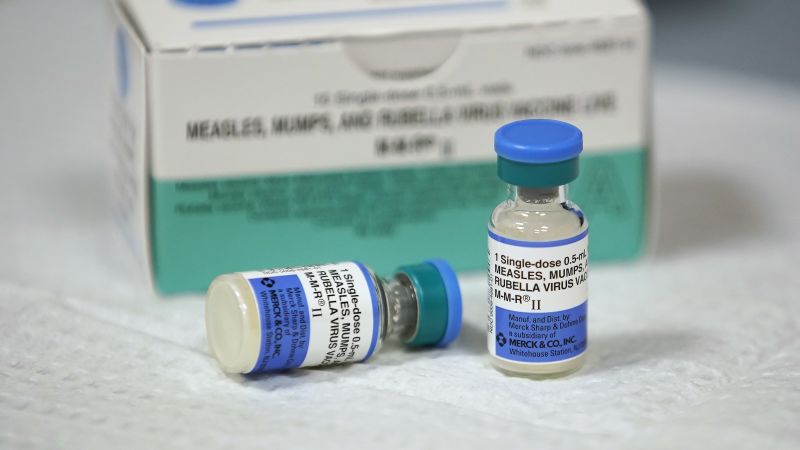In a concerning development reported by the World Health Organization (WHO) and the U.S. Centers for Disease Control and Prevention (CDC), global measles incidents surged by over 20% last year, resulting in an estimated 10.3 million cases. Tragically, around 107,500 individuals, predominantly young children, succumbed to this preventable disease, underscoring an “unacceptable” mortality rate. These figures highlight an urgent public health crisis, as measles is a disease effectively countered by vaccination, particularly through two doses of the highly effective measles vaccine.
The alarming rise in measles cases is primarily attributed to plummeting vaccination levels. The measles virus, known for its high contagion rate, requires that 95% of a community be fully vaccinated to create herd immunity, offering protection even to unvaccinated children, such as those too young to receive the vaccine. Despite the efficacy of the measles vaccine—93% effective after the first dose and 97% effective after the second—many children globally are not receiving these critical vaccinations. In 2023, only 83% of children received their first dose of the measles vaccine, and a mere 74% were administered the second required dose, leaving more than 22 million children unvaccinated altogether.
The issue has become increasingly pressing in the United States, where measles vaccination rates among kindergartners have dipped below federal targets for four consecutive years. The vaccination coverage decreased to 92.7% for the 2023-2024 academic year, according to recent CDC data. The rising trend is further exacerbated by the fallout from the COVID-19 pandemic, which caused widespread reductions in routine immunizations. As of early November 2024, the U.S. reported a total of 266 measles cases along with 16 outbreaks.
The implications of declining immunization rates have resulted in a staggering 60% rise in significant measles outbreaks across the globe during 2023 compared to the previous year. A total of 57 countries reported considerable or disruptive measles outbreaks, exacerbated by misinformation regarding vaccine safety and insufficient access to vaccination. In stark contrast to the situation some countries faced, a decrease in measles fatalities was observed, with an 8% reduction in deaths reported compared to the previous year. This decrease, however, is not due to a decreased virulence of the virus itself but rather because the outbreaks occurred in regions where children had improved access to healthcare and nutrition.
The severity of measles should not be understated as it can cause lifelong health complications, particularly in infants and young children. Common symptoms of measles include fever, cough, runny nose, and red spot rashes; however, the disease can lead to more severe outcomes such as pneumonia, brain damage, and in some cases, even death. Reports suggest that approximately 1 in every 20 children infected with measles may develop pneumonia, and the virus could be fatal for children with weakened immune systems due to malnutrition or other health issues.
Dr. Tedros Adhanom Ghebreyesus, the WHO Director-General, emphasized the critical role of the measles vaccine in saving lives over the past five decades, stating, “To save even more lives and stop this deadly virus from harming the most vulnerable, we must invest in immunization for every person, no matter where they live.” The importance of universal immunization was echoed by CDC Director Dr. Mandy Cohen, who cautioned against backtracking in vaccination efforts, reflecting on the devastating consequences of vaccine-preventable diseases.
In conclusion, this significant rise in global measles cases and deaths serves as a stark reminder of the importance of vaccination. The WHO and CDC are sounding alarms to ensure that we do not overlook the benefits of immunization and the lives it can save, especially as misinformation and access issues continue to endanger public health globally.












